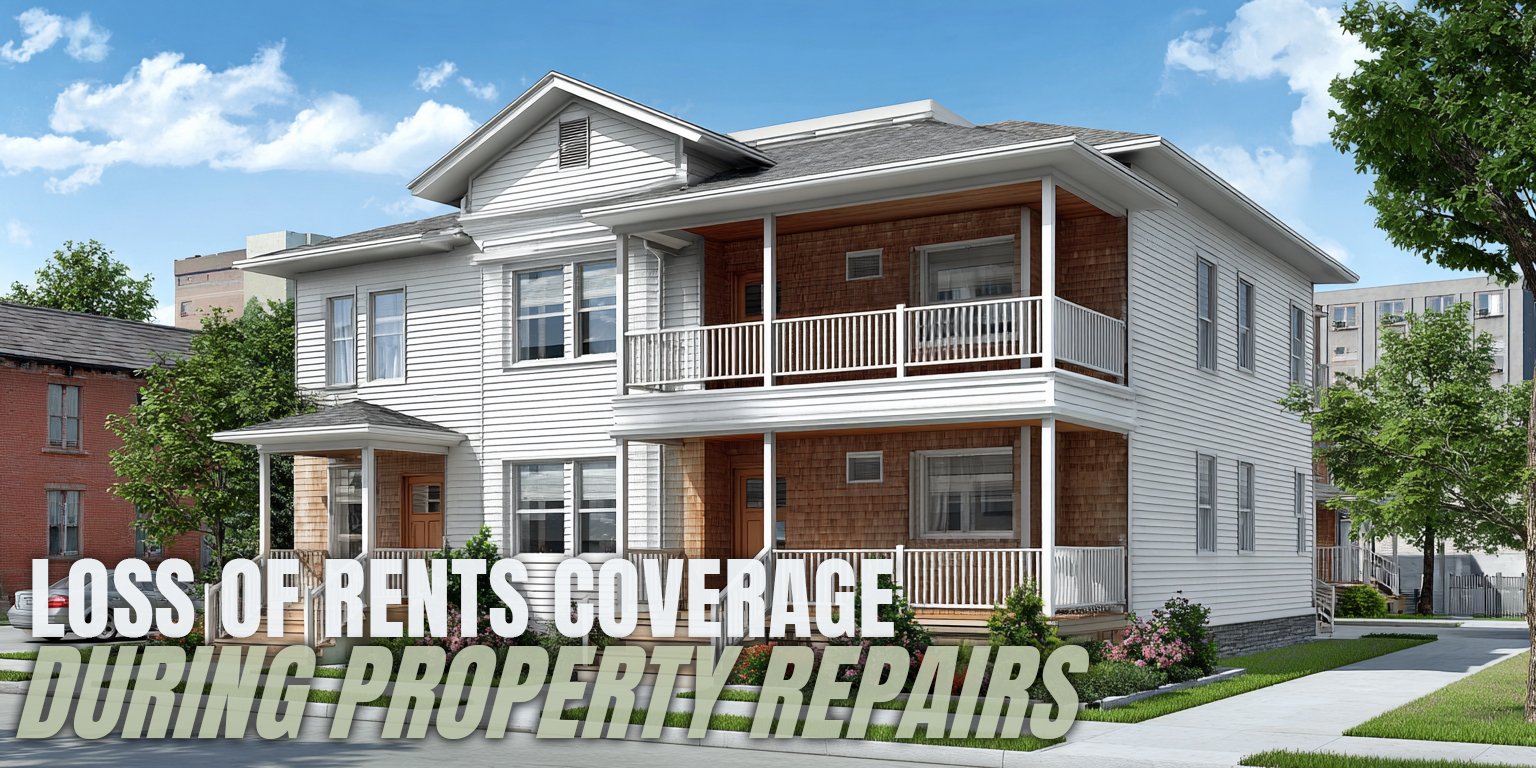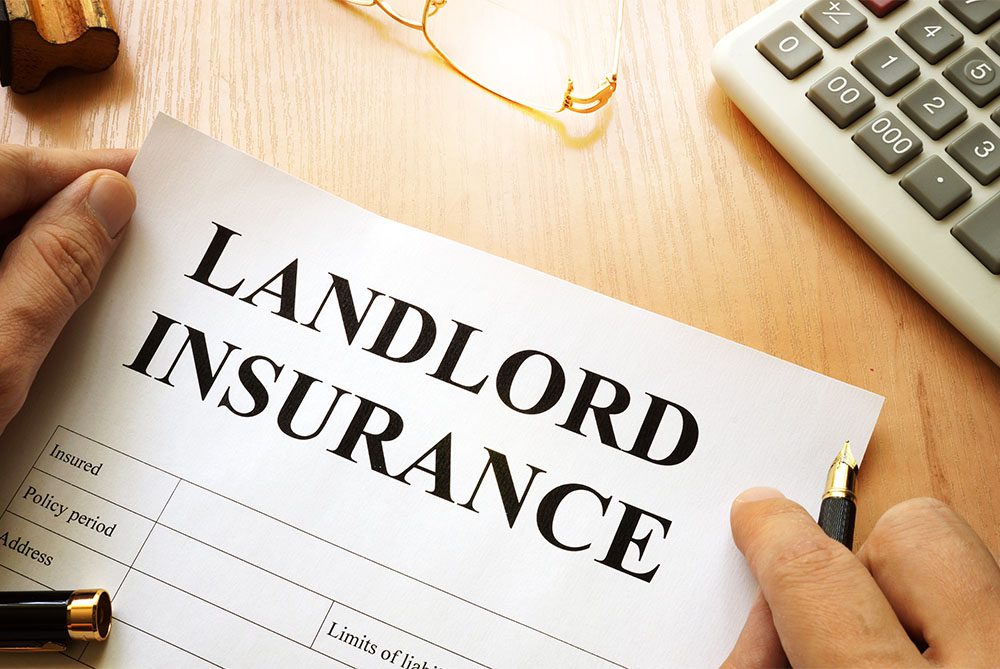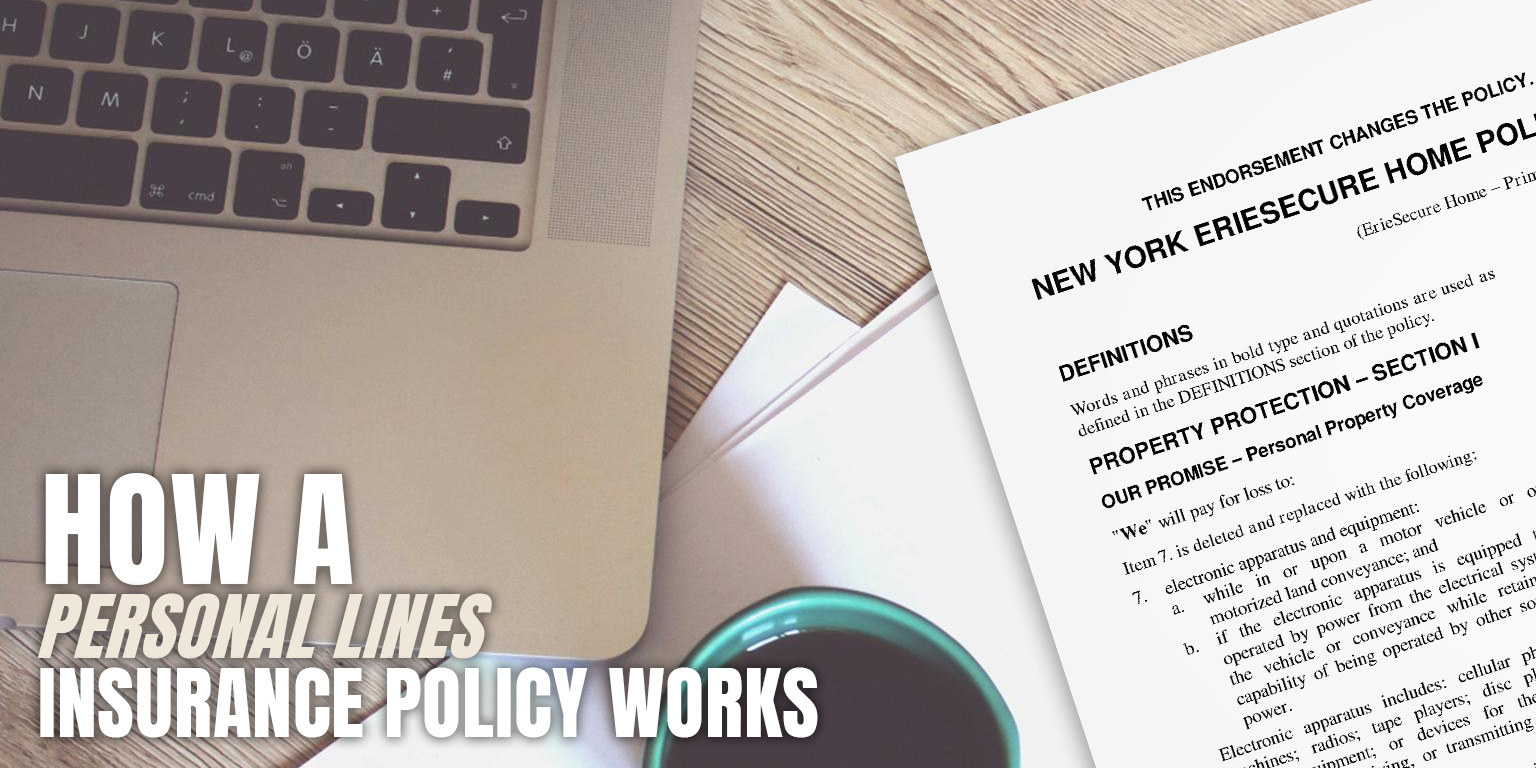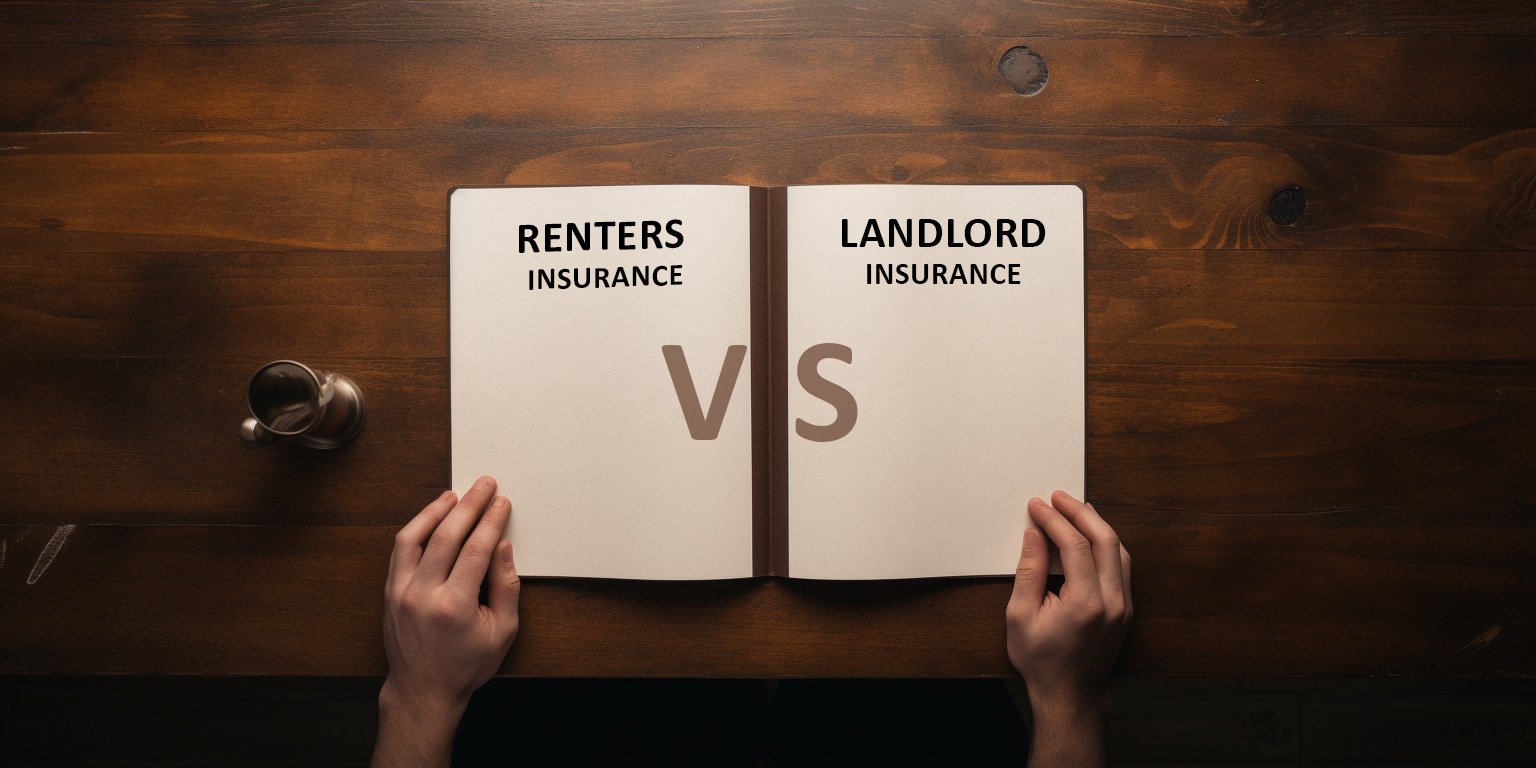10 Insurance Considerations New Landlords Often Overlook When Purchasing Coverage
August 1st, 2025
9 min read

As a landlord, managing the world of insurance can be daunting, and managing a property isn’t easy. Besides insurance matters, you have to deal with tenants, maintenance, taxes, and the occasional legal issue.
Then there are the misconceptions about your wealth and responsibilities.
Sometimes, you have to bear the unfair stereotypes that society has about landlords. You know, the ones that paint you as a greedy, heartless, and rich person who exploits renters for profit.
But we know that’s not true.
We know you’re a hard-working, honest, and responsible person who provides a valuable service to your community. Otherwise, you wouldn’t be reading an article about the mistakes landlords make when buying insurance and how to avoid those mistakes.
Your aim is to become a desirable landlord that tenants prefer to rent from for a long time.
We also know that you need suitable landlord insurance coverage to help secure your investment and your income. We've written this article to help you to that end. We'll also share some tips on how to get the most out of your policy after you purchase it.
This guide will highlight key errors made by landlords, from using your old home insurance policy to neglecting to secure adequate coverage for your rental property.
As an agency with experience in insurance for landlords, we possess a deep understanding of the complexities you encounter. We’ve had the pleasure of assisting clients ranging from those just acquiring their first property to those owning ten or more properties.
Our experience allows us to identify areas of vulnerability for landlords and help minimize those risks through suitable insurance solutions.
The points in this article will help you overcome these pitfalls, so you’ll be better prepared to help secure not only your property but also yourself and your tenants. With that, let’s dive in and explore these important topics, ensuring you have the right insurance coverage for a successful and secure landlord experience.
Key Insurance Considerations That Can Impact Your Rental Property Coverage
Before diving into specific mistakes, it's important to understand that landlord insurance differs significantly from standard homeowners coverage. Your rental property faces unique risks that require targeted coverage solutions.
Mistake #1: Not Updating Your Home Insurance Policy
If you've turned your former home into a rental property, you need to update your insurance policy as soon as possible. Otherwise, you could be left without coverage in case of an accident or damage. That's because a home insurance policy only covers you if you live in the house. Once you move out and rent it to someone else, the policy becomes invalid.
Many well-intentioned landlords have been caught off-guard by this situation. Various circumstances can lead someone to move out of their home and inadvertently become a landlord without proper research. They may think their home insurance will still cover them, but they're wrong.
Their insurance company will not honor their claim if they find out they don't live there anymore. We've seen this happen to many people, and we don't want it to happen to you. Our aim is to help prevent as many people as possible from making this costly mistake before it's too late.
Mistake #2: Not Acquiring Adequate Loss of Rent Coverage
Consider the scenario where your rental property suffers a fire. During the rebuilding process, you lose rental income, but you still have bills to pay. To avoid facing difficulties in covering those expenses, it’s crucial to ensure your landlord policy includes sufficient loss of rent coverage.
Reconstruction can take several months or even over a year before a property is inhabitable again. Therefore, we advise securing a minimum of 2 years’ worth of loss of rent coverage for each unit within the property. This foresight will provide you with financial security and composure during the rebuilding process.
Mistake #3: Not Covering the Full Replacement Cost of the Rental Property
You may be surprised to learn that approximately 70 percent of residential homes are considered underinsured, meaning they don’t have enough insurance to cover the full cost of rebuilding them in case of a total loss. This is especially true for rental properties, which may have more features and amenities than average homes.
If your rental property is underinsured and it gets destroyed by a fire or another disaster, you may not be able to rebuild it the way it was before. You may end up with a smaller or less attractive property that won’t appeal to your target renters.
For example, if you had a five-bedroom house with a finished basement and a garage, and you only have enough insurance to rebuild a three-bedroom house with no basement or garage, you’ll lose potential income and value.
That’s why you need to make sure your insurance covers the full replacement cost of your rental property. This means the amount it would take to rebuild your property with similar materials and quality at current prices. To do this, you need to provide accurate and detailed information about your property to your insurance agent.
Tell them about the size, layout, features, and finishes of your property, such as the number of furnaces, kitchens, doors, basements, garages, counters, or any custom elements. Those details will help them calculate suitable coverage amounts for your rental property.
Mistake #4: Not Having Enough Liability Coverage
As a landlord, you have a legal duty to ensure the safety and well-being of your tenants and visitors. If someone gets hurt or suffers any harm on your property, you could be held liable and face a lawsuit. That’s why you need to have adequate liability coverage in your landlord policy.
Liability coverage can help you pay for the medical expenses, legal fees, and damages that may result from a liability claim against you. The amount of coverage you need depends on your risk level and the value of your assets.
As a landlord, you may face more lawsuits than a homeowner. That's why you should ask for substantial liability coverage amounts from your insurance carrier.
You should also consider getting an umbrella policy, which is an extra layer of liability coverage that kicks in when your landlord policy reaches its limit.
Mistake #5: Not Covering Your Personal Property
Even if you don’t furnish your rental property, you may still have some personal items that you leave there for your tenants to use. These could include lawnmowers, tools, curtains, and appliances. Your landlord policy does not cover these items unless you specifically add personal property coverage for them.
Personal property coverage can help you replace or repair your personal items if they’re damaged or destroyed by a fire or another covered peril. The amount of coverage you need depends on the value and quantity of your personal property. If you have multiple rental units in your property, you may have more personal items to cover.
Don’t forget to include your personal property in your insurance quote. Talk to your agent about how much personal property coverage you need and how to add it to your landlord policy.
Mistake #6: Not Getting a Student Rental Policy
If you own a rental property near Syracuse University or other institutions of higher learning, you may be tempted to rent it out to college students. However, this is not a simple decision. You need a policy designed for student rentals because they have different risks than regular rentals.
Most insurance carriers will not insure properties that are rented to students because student housing has a high rate of turnover and vacancy, which makes it less appealing due to lack of consistent and long-term occupancy. You need to find a carrier that offers student rental policies that are designed to help address these risks.
Don’t assume that your regular landlord policy will cover you if you rent to college students. You need to tell your agent about your plans and get a quote for a student rental policy.
Mistake #7: Not Reporting Vacancy
As a landlord, you may have to deal with periods of vacancy between tenants. This is normal, but it can also affect your insurance coverage. Your policy and premium are based on the assumption that your property is occupied.
Most insurance carriers understand that vacancy is inevitable sometimes, and they won’t penalize you for it. However, they need to know if your property is vacant for more than 60 days. If you don’t notify them of the vacancy, they may deny or reduce your claim if something happens to your property.
Don’t risk losing your coverage because of vacancy. If your property is empty for more than 60 days, contact your carrier and let them know. They may adjust your policy or offer you a vacancy endorsement to keep you covered.
Mistake #8: Not Updating Your Policy After Transferring to an LLC
Some landlords choose to transfer their property ownership to a limited liability company (or LLC) for legal reasons. This is a common practice, but it can also have serious implications for your insurance. If you don’t inform your insurer of the change, you may lose your coverage and your claim rights.
That’s because your policy is based on the name and interest of the original owner. If you transfer the ownership to an LLC, you are no longer the owner and have no interest in the property. Your insurer can deny any claims or lawsuits that arise from the property if they find out that you’re not the owner anymore.
You should also be aware that many insurers will not cover a residential property owned by an LLC or any other corporation. Even if your LLC only exists to own the property, you may still have to switch to a different insurer that accepts this type of ownership.
If you’ve already transferred your property to an LLC or plan to do so, please let us know. We can help you find a quote from an insurer that will cover your property under an LLC.
Mistake #9: Not Reporting Property Improvements
Some landlords invest a lot of money and effort into improving their rental properties before renting them out. They may have an insurance policy in place before they buy the property, but they make a crucial mistake. They don’t tell their insurance agent about the improvements they made.
This can result in underinsuring your property, as we discussed earlier. If you make significant upgrades to your property, such as adding rooms, installing new appliances, or renovating the kitchen or bathroom, you need to update your insurance policy accordingly. Otherwise, you may not have enough coverage to rebuild your property to its improved condition if it gets damaged or destroyed.
This is a good practice for any property you own, not just your rental property. You should always inform your insurer of any major changes or improvements you make to your property.
Mistake #10: Not Requiring Renters Insurance
As a landlord, you’re liable for any injuries that happen on your property. You can’t control everything that your tenants do or prevent accidents from happening. That’s why you should always require your tenants to have renters insurance.
Renters insurance is a policy that covers your tenants’ personal belongings and liability. If a guest of your tenant was accidently injured, the tenant’s renters insurance will pay for the medical costs or the legal fees. This way, you won’t have to use your own insurance or pay out of pocket.
Some examples of situations where renters insurance can help you and your tenants are:
- A dog bite
- A gun accident
- A slip and fall
- A fire
- A drowning
These are a few possible scenarios that could lead to a lawsuit or a claim against you. By requiring renters insurance, you can reduce your risk and liability as a landlord. You can also avoid disputes with your tenants over who is responsible for what.
Renters insurance is inexpensive and easy to get. You can even include it as a condition in your lease agreement. Don’t make the mistake of letting your tenants rent without it. A required renters policy could save you a lot of trouble and money in the long run.
Make Informed Insurance Decisions for Your Rental Property
Understanding these common mistakes is just the first step. Working with an experienced insurance agency can help you navigate the complexities of landlord insurance and explore coverage options that address your specific situation.
Avoid These Mistakes and Secure Your Rental Business with Suitable Insurance
If you're a new rental property owner, don't ignore this article and make these highlighted mistakes, or you could face various negative consequences. Without updating your insurance policies and assessing the coverage needed, you may be left without adequate coverage in case of accidents, property damage, or liability claims.
This could result in significant financial loss, legal disputes, and even tarnishing your reputation as a responsible landlord. It's essential for you to be aware of these mistakes and take preventive measures, such as securing suitable insurance coverage, to help secure your investment and provide a safe and secure rental experience for tenants.
By avoiding the mistakes outlined in this article, you have a chance to become a desirable landlord that tenants prefer to rent from for a long time. You’ll be on a path to long-lasting relationships with tenants, which is the optimal scenario for a property owner, as it eliminates the need for frequent tenant searches and turnover.
Your goal as a landlord is to attract and retain good tenants who will take care of your property and pay rent on time. You also want them to rent for the long haul. This will help you avoid the hassle and cost of finding new renters every year.
We know that insurance can be confusing and overwhelming, especially if you're new to renting out your property. That's why we're here to help you find suitable coverage for your situation.
Our agency has experience with insurance for landlords. We can guide you through the process of getting appropriate coverage for your needs and budget. We can also help you update your policy as your circumstances change, such as when you make improvements to your property, transfer it to an LLC, or rent it to college students.
We understand the challenges and rewards of being a landlord. We know you're not just a property owner but a service provider and a community member. You deserve composure and security as you run your rental business. We work with insurers that can provide suitable landlord insurance policies that help provide both.
If you're ready for coverage options that address your situation, property, and budget, click the Get a Quote button below to get started. We'd love to hear from you and help you secure your investment and income.
But if you’d rather continue your quest for knowledge regarding landlord insurance, read “Securing Your Investment: Why Landlord Insurance Matters for Rental Property Owners in Central New York.”
Daniel is an accomplished content creator. He has been working in publishing for almost two decades. Horan Companies hired Daniel as its content manager in November 2022. The agency entrusted its messaging to him. Since then, Daniel has written insurance articles, service pages, PDF guides, and more. All in an effort to educate CNY readers. He's helping them understand the world of insurance so they can make informed decisions.
Topics:









